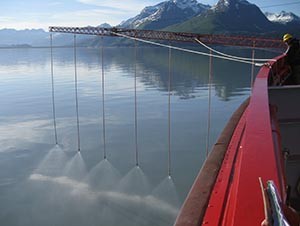By Steve Rothchild
Administrative Deputy Director
The Alaska Department of Environmental Conservation’s division of Spill Prevention and Response, often referred to by the acronym “SPAR,” has been facing a significant funding shortfall for some time due to declining oil production. The division works to prevent, prepare and respond to spills of oil and hazardous substances as well as oversee the cleanup of contaminated sites. Their work includes facility inspections, contingency plan review and approval, drills and exercises and site monitoring.
In the 1980s, the State legislature instituted a per barrel surcharge on crude oil to provide funding for the division. Unfortunately, when originally enacted, there was no inflation protection in the bill and production has declined.
Running out of money
This year, without inflation protection or another funding source, the crude oil surcharge became inadequate to support SPAR’s work, necessitating staff reductions and other cost savings. Starting in early 2014, department personnel provided projections to both the House and Senate showing the decrease of funds due to lower oil production. SPAR has been relying on large oil spill settlements and penalties to address the shortfall for several years but those are now spent. This year, SPAR reduced expenses by combining the planning and prevention program with the prevention and response program, reducing personnel, and more actively pursued cost reimbursement, however the shortfall was projected to be $7 million annually. Without a fix to funding, essential services would cease and SPAR would have to reduce personnel by approximately 40 percent.
Read more
